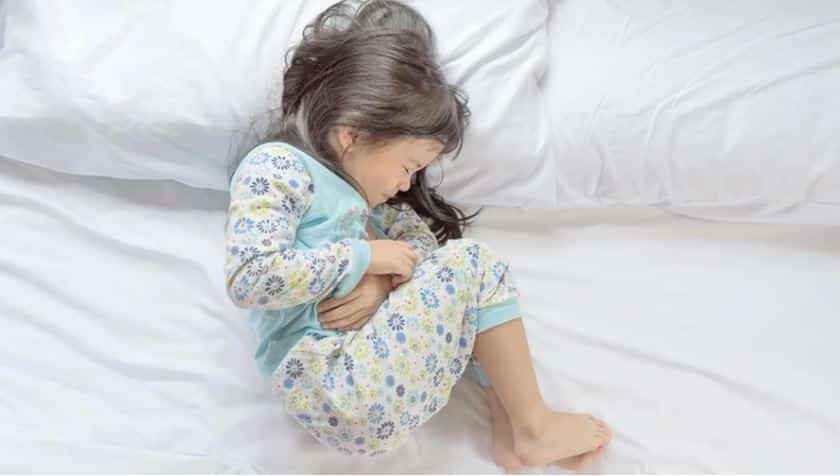Urinary Tract Infections, better known as UTIs, is something that many women (approximately 60%) and some men, have experienced in their lifetime. The constant need to pee, the strange colour when you do, and – of course – that buuurning sensation. UTI’s are the worst and unfortunately, they are exacerbated by the female anatomy, safe sex, pregnancy, and even menopause!
UTIs happen when bacteria enters the urethra and infects the urinary tract. The majority of UTIs occur in the bladder, but if left untreated, they can spread to the kidneys and cause serious damage.
Some people are just genetically more susceptible to urinary tract infections. It could be the way your urinary tract is shaped or even that UTIs run in your family. Regardless, not having a game plan for preventing UTIs is like sending them a VIP invitation to come back for more.
Key tips for preventing recurrent UTIs
Natural remedies, like cranberries, can prevent bacterial growth and reduce frequent UTIs. Cranberries are packed with a powerful micronutrient called proanthocyanidins (PACs). Studies show that PACS can stop bacteria from sticking to the bladder walls so that it continues to move through the urinary tract. By taking a daily PACs supplement with at least 15% concentration, you can be proactive about your UTI health.
Here are other key tips for preventing recurrent UTIs include:
- Drinking lots of water and pee often, especially before and after sex.
- Keeping things extra clean around your vagina and rectum.
- If you need to take antibiotics, make sure you finish them.
- Talk to your doctor about ways to balance your estrogen levels.
- Be mindful of bacteria during sex and when choosing a contraceptive.
Did you know that UTIs are unbelievably common for children of all ages too? Up to 8 in 100 girls and 2 in 100 boys will get a UTI by age 5. UTI symptoms in kids can be tough to catch and even harder for them to communicate. And if left untreated, a UTI can cause serious health concerns for your little one. Here is some more information about why UTIs happen, how do you deal with them, and what can be done to prevent them.
How do children get UTIs?
A big risk factor for kids is that they’re still learning how the whole bathroom situation works. When to go, where to wipe, how to wipe. Toilet-training is more than just getting kids out of diapers.
During the learning period, it is a perfect time for bacteria to make their move up the urethra and possibly to the bladder and kidney. Causes of UTIs in kids include infrequent peeing, delaying urination for a long period of time, poor toilet and hygiene habits, and wiping from back to front after pooping. In fact, the most common bacteria that causes UTIs in children is E. coli, which grows in the intestine and can easily spread from the anus to the urethra.
Girls are 3 times more likely to get a UTI than boys. Their urethras are shorter and closer to the anus, making it easier for bacteria to spread. Vulvitis – a condition where the vulva is irritated or inflamed – can also put girls at risk.
According to pediatrician Dr. Steve J. Hodges, “We found that girls with vulvitis were at least eight times more likely to have a lab-diagnosed UTI than girls without vulvitis, suggesting that vulvitis is a major contributor to UTIs in young girls.”
Here are other common causes of UTI in children:
- Exposure to bubble baths (for girls)
- Tight-fitting clothes or underwear (for girls)
- Swimming pool water
- Complications with the urinary tract
- Family history of UTIs
- Vesicoureteral reflux, a birth defect that causes urine to flow backward
How do you know if your child has a UTI?
It’s pretty obvious for adults. The burning sensation is hard to miss. UTI symptoms in kids can be overlooked because they either seem fairly normal or they seem to be pointing to a different issue. Most kids struggle with describing their symptoms or communicating why they feel sick. On top of that, UTIs in toddlers and infants might not show any symptoms at all.
Symptoms in young children can include fever, poor appetite, vomiting, diarrhea, and irritability – all symptoms that many parents easily write-off as a bad day.
For bladder infections, you might notice your little one has bloody or cloudy urine, a burning sensation when they pee, or that their pee smells bad. And for kidney infections, symptoms could include high fever, chills, nausea and vomiting, back and stomach pain, or severe fatigue.
Keep an eye out for kidney infection symptoms especially. If this type of UTI goes untreated, it could potentially lead to kidney failure, kidney swelling, or even organ failure.
How are UTIs in kids diagnosed?
If you think your child might have a UTI, don’t wait. Call your doctor right away to stop the infection before it spreads. Most physicians will require a urine sample to diagnose the UTI. If your child isn’t toilet trained, there are a few other options:
- A urine collection bag that simply attaches to their skin
- A catheter inserted into the urethra or penis
- A needle inserted directly into the bladder
Once they have a sample, your doctor can check for bacteria and choose the best action plan for treatment.
How to treat a UTI in children
Antibiotics are the best way to fight your child’s UTI quickly and effectively. The type of antibiotic and length of use will depend on how serious their infection is, but 3 to 10 days is the usual.
Make sure your child takes all the medication, even if they start to feel better. Otherwise, the bacteria might resist the antibiotics and keep on multiplying. Their symptoms should start to clear up within 3 days of taking the medication. If not, give your doctor a call.
Unfortunately, there are a few cases where your child might have to be hospitalized for a UTI. For example:
- If they are younger than 6 months
- If they have developed a kidney or blood infection
- If they can’t take fluids or medicine by mouth
How can I prevent UTIs for my child and myself?
You can break the UTI-antibiotics cycle with several natural remedies that can reduce the frequency and severity of UTIs. For example, Utiva’s UTI Control Supplement contains 36 mg of PACs at 15% concentration (one of the highest in the market). It’s clinically proven to prevent UTIs, improve gut and bladder health, and provide a boost of healthy antioxidants.
Your kids already love gummies. Why not give them super gummies? Utiva’s delicious UTI Control Gummies are packed with 18mg (per serving of 4 gummies) of PACs, a 100% natural agent derived from cranberries. This active ingredient is clinically-proven to fight bacteria and prevent infection. Utiva UTI Control Gummies are also full of antioxidants that can help your kiddos improve their everyday immune system. Plus, it’s doctor recommended and completely kid-friendly.
For proper hygiene, make sure to always have cleansing wipes on hand. Utiva’s flushable Cleansing Wipes are specially formulated with natural ingredients to avoid irritation and keep you feeling fresh.
There are also a few small changes you can make to your daily routine to protect your child from UTIs:
- Make sure your child drinks enough fluid to keep bacteria flushing out freely
- Avoid bubble baths for girls, as soap and bacteria can get into the urethra
- Don’t dress girls in tight-fitting clothes or underwear
- Make sure girls are wearing cotton underwear for better airflow
- Say no to caffeinated drinks that can cause bladder irritation
- Change diapers frequently
The number one tip for prevention? Get talking. Talk to your kids about good hygiene, proper wiping techniques, and why it’s bad to hold in their pee. Ask them questions about their symptoms. Let them know that it’s okay to say whatever they’re feeling, even if it seems embarrassing. Keep the communication open and available, so your child knows how to stop a UTI and how to talk about one if it happens.
Are you ready to start preventing UTIs? Use the code BCPARENT20 to get 20%OFF your first purchase!
This post was sponsored by Utiva Health Canada. BC parent believes this information is valuable to our readers.










